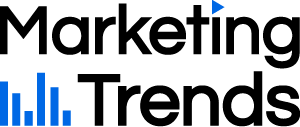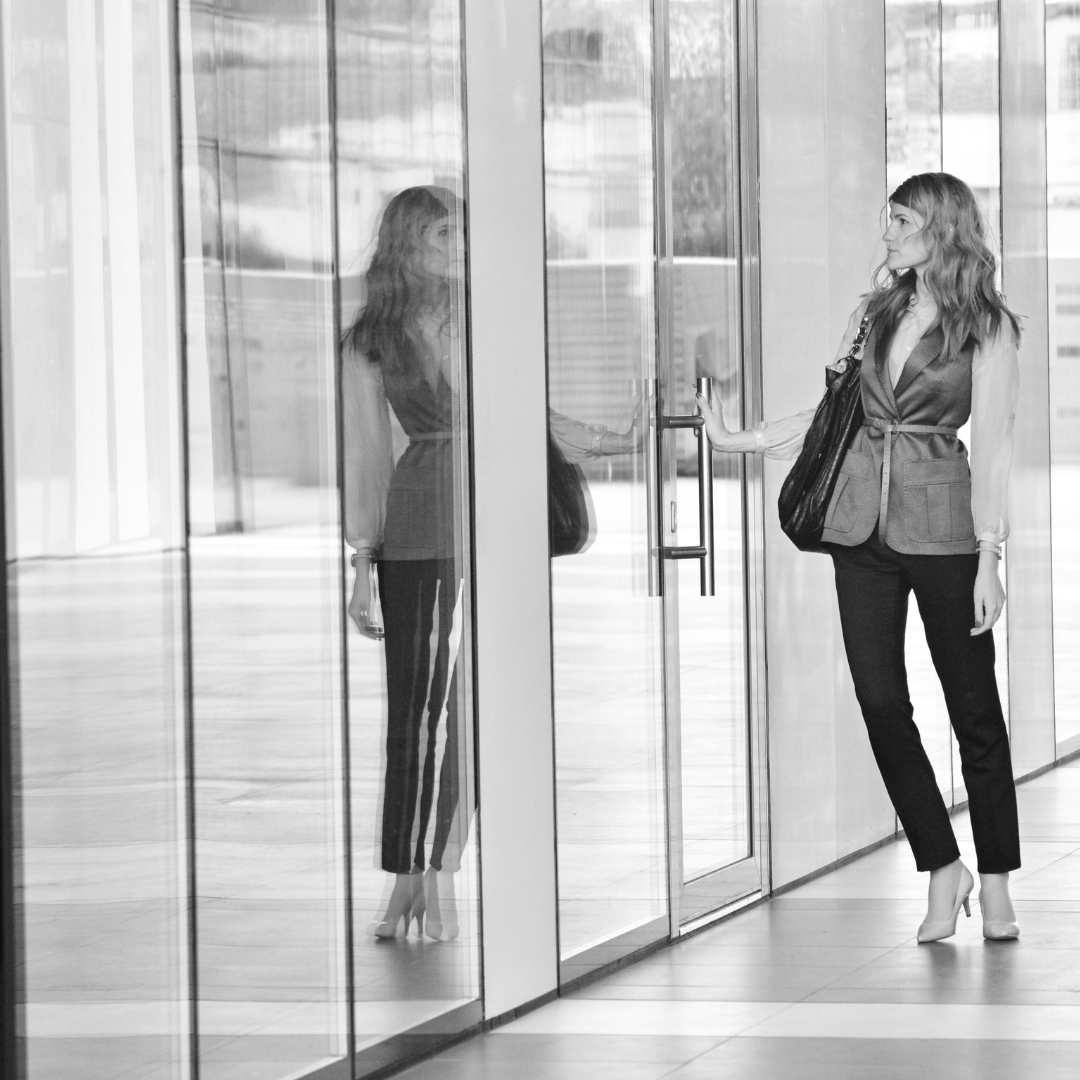Rachel Hopping

At Marketing Trends, we are discovering what drives Australia’s top marketers. How can start-ups disrupt a traditional industry? How do they differentiate themselves in an established market? Rachel Hopping gives us an insight into how fintech start-up Superhero is helping reshape the Australian stock market and how young generations are investing.
Career & professional background
Rachel, how did you decide you wanted to pursue a career in marketing and started working in the industry?
My first job was as a cleaner at my uncle’s pest control company, where I certainly learned a lot about managing a business, customer care and communication.
Then, in high school, I started helping out with a small family accommodation business, creating the WordPress website and an online booking system.
My mum has a marketing background, yet being the family's first digital native, I learned mostly how to do it through Google and found a passion for digital marketing and technology driven disruption.
Finishing high school, I liked marketing, but I was unsure of what to do, and my career adviser suggested I apply for a co-op scholarship at UNSW. I didn't really know what that was, but applied anyway, enticed by the thought of being paid to study. I ended up getting the scholarship and studying a double major in marketing and information systems.
If you hadn’t taken your career path, what else do you think you might be doing?
I've always been an all-rounder. I enjoyed sports and was kind of musical. I was good at English, but maths ended up being my best subject. I was never that “tunnel-vision kid”, I liked a bit of everything yet, one thing I was particularly interested in was genetics and biomedical engineering.
So I’d probably still be working in marketing, but possibly in the healthcare technology field.
Tell us a bit about Superhero and your role as marketing manager.
I joined Superhero over two months ago, and it already feels like it's been forever. Our product launched to the market in September 2020, so it’s very new.
I made the jump over from eBay, an established global brand, but that still operates as a start-up in Australia in many ways. The company was constantly innovating.
At the beginning of the pandemic, I knew a lot of people that got into investing for the first time. I was one of those that had always been interested, but was unsure. I didn't know where to get information from or what platform to choose. When the market crash happened, I thought, “Why not give it a go?”. Then, throughout this year, I've gotten more and more interested in the stock market.
I was already familiar with Superhero when I saw the job position come up. The combination of technology, investing and marketing was a no brainer for me. I met the Superhero co-founders and was inspired by their passion and drive straight away.
I was hired to be the CRM and engagement manager, but at a start-up, you're never doing just what your title says.
Being a new product, we’ve been setting up our CRM systems over the last few months. We focus on making sure that we are reaching our customers at every point of their journey, and on the ways customers interact with us, whether that's through live chat, social media or any other platform.
My job is looking at the CRM and engagement strategy in a holistic way. That includes also looking into partnerships, working with influencers and building content.
So at the moment, I am the marketing team, although we are currently expanding quite rapidly as the company grows, and we launch new products.
Marketing & Industry Trends
How would you say COVID- 19 affected Superhero?
COVID-19 has changed how people invest. When the market crash happened, everybody obviously was a bit afraid, yet investing in the stock market reactivated quite quickly.
I think a lot of people saw it as an opportunity to “get in low” and had more time at home, which allowed them to educate themselves on the matter. Podcasts are also taking off, and there are some good ones that focus on investing for beginners that are really useful.
With this context in mind, we launched Superhero in September, focusing on our three pillars: making investing accessible, understandable and affordable.
What would you say are the most exciting trends and innovations happening in your field?
Two words come to mind: personalisation and automation.
How people manage their money and choose to spend, save and invest is very personal. While at Superhero, we want to be for everyone, and believe investing is for everyone, the truth is that everyone is different. Their goals are different, their financial situation is different, and how active they want to be in their investing is different.
With that in mind, we have to tailor not only our platform and provide features for different types of customers, but also our messaging. We need to adapt all our marketing to meet people where they are.
Recently, the ASX published an investment analysis looking into the new generation investors. The analysis showed that 41% of the age bracket “18 to 24” wanted to learn about investing through YouTube. This channel wasn't even mentioned as a learning tool in other age brackets. The power of the “next-gen” investor, made accessible through technology and social media, is one of the most exciting innovations in the finance space.
Customers now expect to be able to receive content how they want, when they want. Today, there are so many different channels, particularly with social media where communication is instant, and anyone can contribute and comment.
This is where automation comes in, to streamline manual processes and use behaviour triggered messaging.
At Superhero, we’re innovating by changing the traditional financial services model. Our platform offers low-cost trades through a platform that is mobile-first and easy to use.
We're currently launching a superannuation product that will allow Aussies to have more control over their super portfolio without having to set up a self- managed super fund, which will further disrupt incumbents in the finance industry.
A lot of young people are disengaged with their super, in big part because retirement seems forever away, something that we want to change. We want young Australians to be empowered and see their super as a pivotal element of their wealth creation journey.
Which are the biggest challenges for Superhero and for the FinTech industry moving into the future?
In terms of challenges for the FinTech industry, Australia's traditional banking model is led by 4 big banks that have strong brand presence and large amounts of capital. They don’t want their “turf” to be taken by small startups who are disrupting the market.
At Superhero, we’re not trying to take on the big banks, and the real power comes in leveraging the best of long-term trust and brand awareness with new innovation. Recently, Westpac and Afterpay announced a partnership that is the kind of concept that brings together the best of the traditional banking model, and the innovation and agility of a start-up.
Tools, recommendations & sources of inspiration
How do you structure your day and organise your week?
I tend to wake up at 6:30 AM, head to my HIIT class at Beat Body in Darlinghurst and arrive at the office at 8:30 am.
Working for a start-up, no day is the same. It's all about the priority for that day and sometimes you don't even know that until you get into the office.
I write myself a new list every day. I look back at the list from the day before, refresh and reprioritise, based on what is needed for that particular day and any news that’s come in overnight.
I don't have a lot of meetings (yet), which I’m enjoying, coming from a company where we had lots of them. I'm enjoying sitting at my desk and actually getting the time to research and plan, along with the ability to pop my head over my monitor to ask the team questions (benefits of having a small team at the moment).
There's a concept named Deep Work. There’s actually a book by Cal Newport about it. If you think about it, nowadays we've got emails, meetings, Slack’s instant messages, social media notifications, etc.
This can be distracting because you're constantly flicking between different tasks and makes it harder to focus, be creative or maximise output.
So I'm trying to make sure that I switch off as much as I can. For example, I take my phone off the desk and check my emails only a few times a day which gives me time to focus.
What brands do you take inspiration from and which companies you like to follow?
Two areas that inspire me are the start-up world and companies focused on sustainability.
One company that I used to work with a lot while at eBay was Sendle, an Australian logistics company. They have great product and customer experience, offering small to medium businesses fast, affordable shipping. The best part, they’re 100% carbon neutral.
With eCommerce growing, much more waste is being created by packaging, and Sendle is doing something about it and not letting the consequences of our actions become the problem of future generations.
I also take inspiration from people that run small businesses. For example, I admire my partner's mum, who runs a fashion boutique in Manly called 23 Albert.
She's obsessed with her craft and with making every customer have the best experience possible. It’s inspired me to remember that no matter how digital the world gets, there’s an individual person on the side of every screen and to treat every customer interaction as though I’m standing right next to them in a store.
Which is your favorite software at the moment?
Slack is a software tool I use everyday, and makes my job and communication with my team so much easier. It offers an integrated ecosystem and is more efficient than using many channels.
You have it in your mobile, which allows you to reply to urgent messages. It’s also great for tracking conversation, which means less emails and it has the ability to attach files. I would say at Superhero the internal communication is 70% Slack, 30% email.
What resources would you recommend? In terms of blogs, podcasts or books.
I’d recommend the podcast How I Work by Amantha Imber, an organisational psychologist. She interviews Australian and international business leaders about their working routines and how to maximise productivity.
I met her when I was working at eBay. She gave the staff a talk during lockdown about how to be productive working from home. She is actually the one that recommended that book I mentioned, Deep Work.
Another podcast I love is Lady Start-Up Stories. It’s a Mamamia podcast and it’s about australian females and how they've built their businesses. It's like the very famous How I Built This, but I like it’s about Australians and about females, which is very relatable to me, an Australian female.
Their stories of overcoming challenges and building their businesses in unlikely circumstances gives me confidence that with hard work and the right attitude, big things can be built and entire industries changed.


